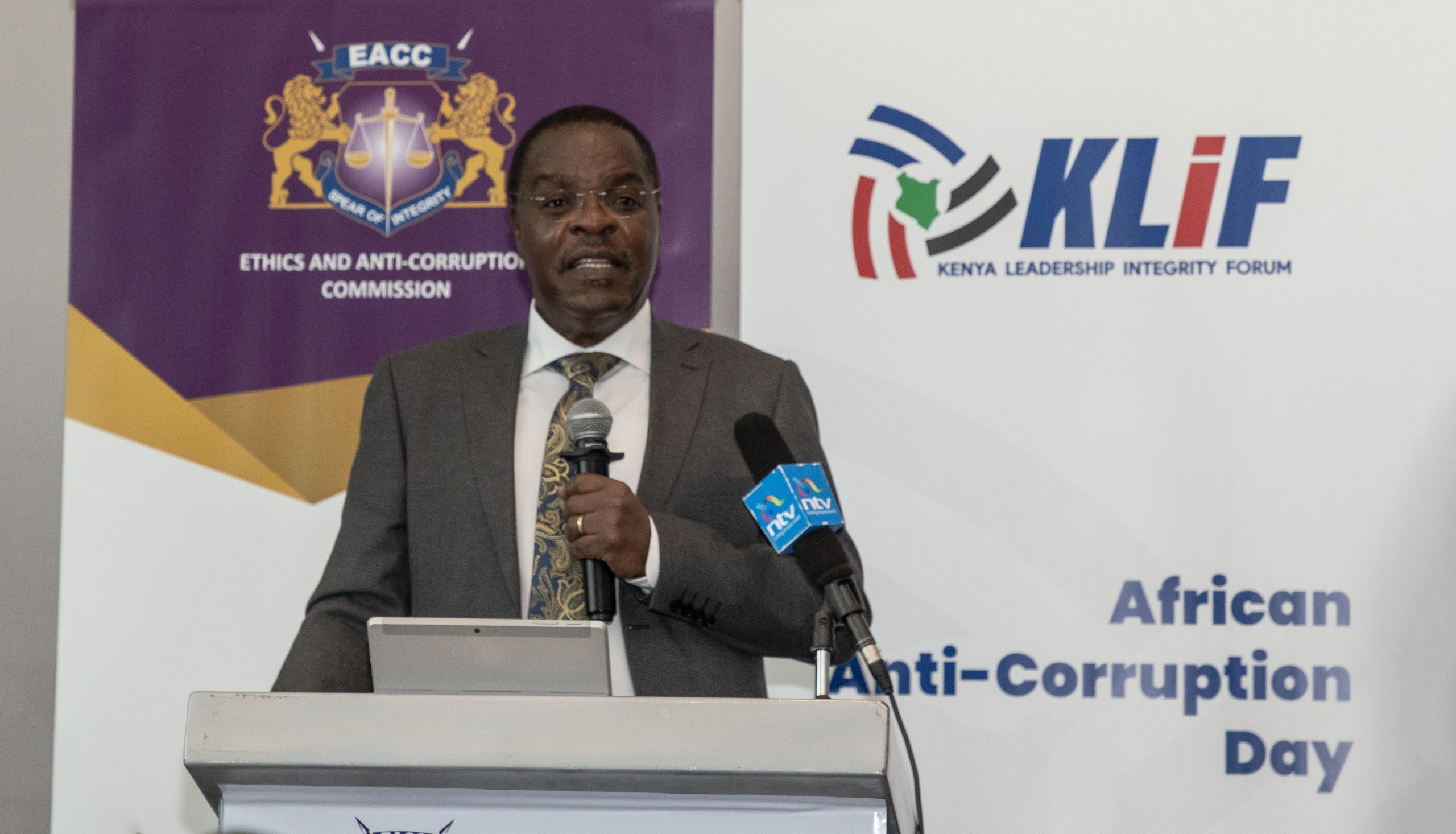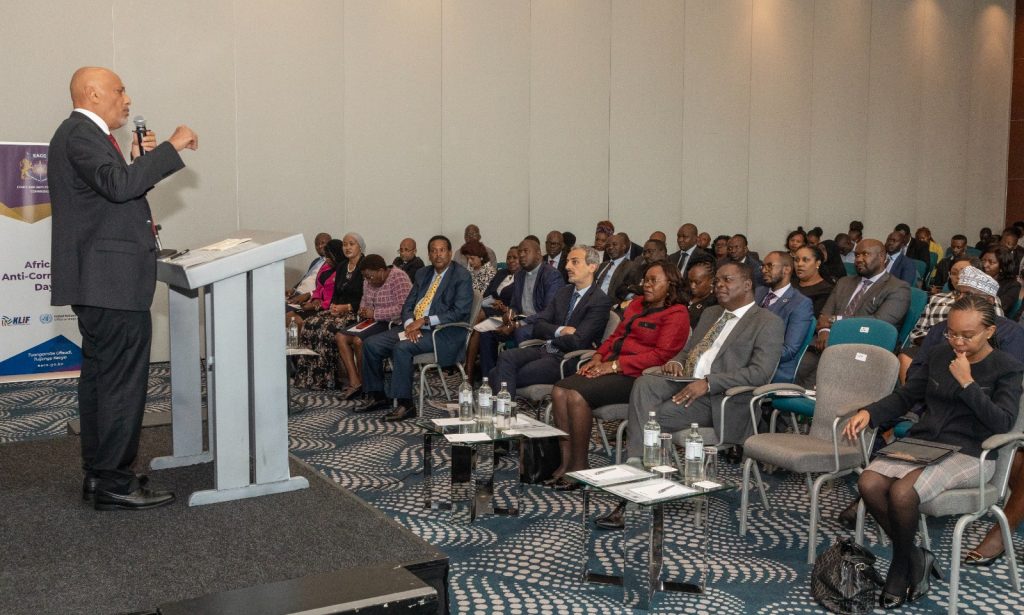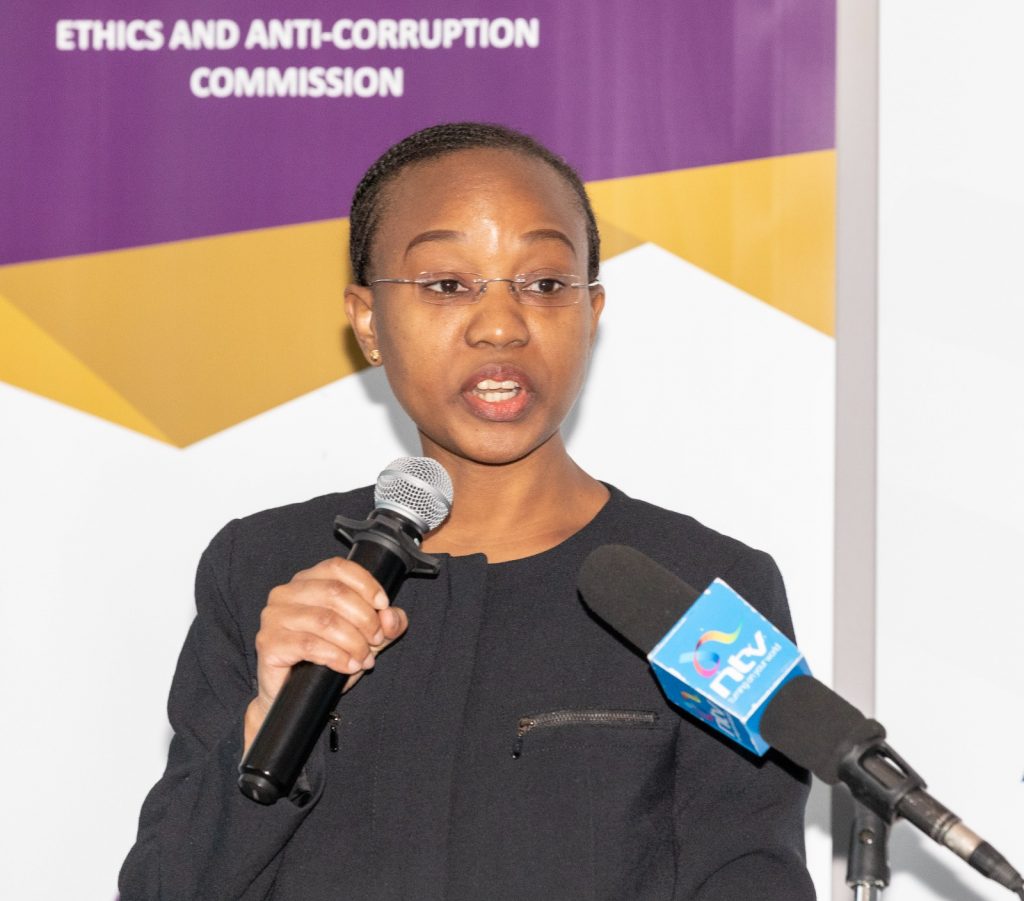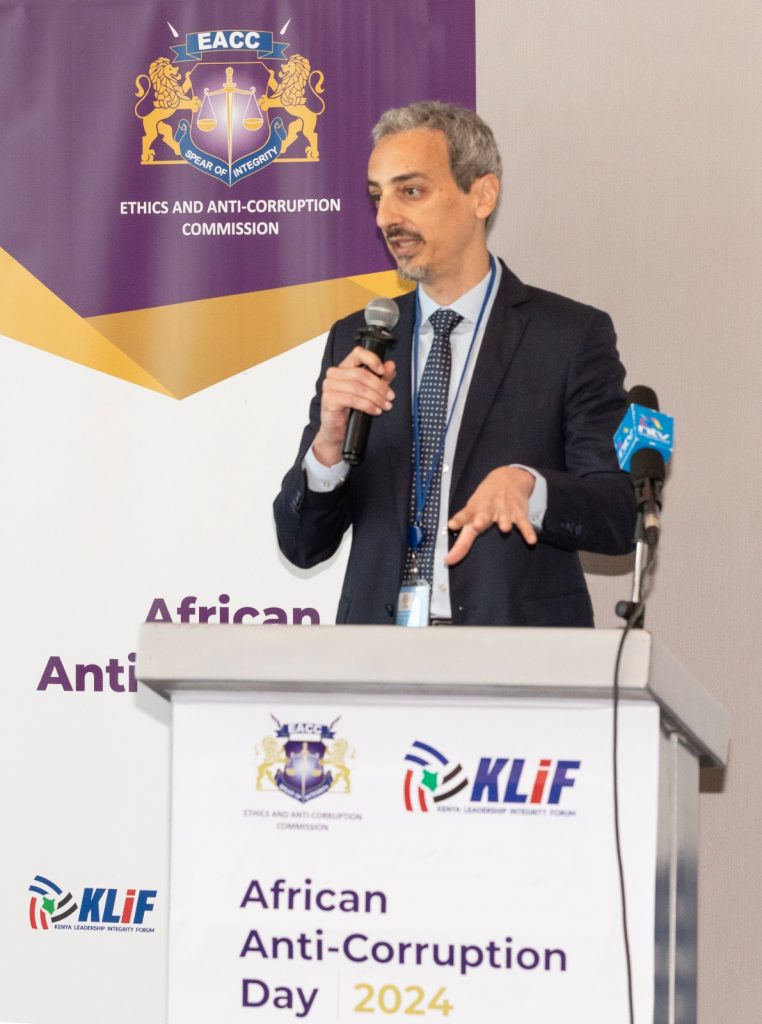Kenya observes African Anti-Corruption Day with focus on strengthening whistleblower mechanisms

12:07:2024: Kenya joined the rest of the Member States of the African Union (AU) in commemorating the African Anti-Corruption Day yesterday.
July 11th of every year is set aside so that concerned Africans can pause to reflect on anti-corruption progress in their communities in regards to the successful or unsuccessful anti-corruption initiatives and interventions and to chat the way forward.
Yesterday’s commemoration theme reflected on the reforms required to strengthen existing whistleblower mechanisms including protection of whistleblowers, effective anonymous reporting systems and the role of citizens in advancing the elusive quest for accountable governance.
The Ethics and Anti-Corruption Commission (EACC) led Kenya in celebrating the day in an event organized at Raddison Blu Hotel in Nairobi where it was joined by Kenya’s development partners and representatives of the Kenya Leadership Integrity Forum (KLIF).

KLIF is a stakeholder’s forum consisting of 15 sectors that partner in the fight against corruption and unethical practices in Kenya. It brings together stakeholders from the public and private sectors, civil society and religious organizations to map out an integrated approach to preventing and combating corruption including the Legislature, Judiciary, Executive, EACC, Enforcement and watchdog agencies, County Governments, Media and Religious Sector.
Speaking at the event, EACC Chairperson, Dr. David Oginde noted that whistleblowing is key in the anti-corruption endeavours as it ensures that corruption, due to fear of reprisal, goes neither undetected nor unpunished. He also observed that whistleblowing in Kenya is adversely affected by trust deficit in public institutions.
For Kenya to overcome the challenge of corruption, Dr. Oginde said, all state and non-state actors must play their roles in weeding out corruption and stressed the importance of putting in place mechanisms for whistleblower protection and enhanced good governance.

Dr. Oginde appreciated that for Kenya, this year’s commemoration of the African Anti-Corruption Day comes in the wake of an increased clamour by the youth for accountability and good governance in the country. He encouraged all stakeholders to engage in finding lasting solutions to the prevailing challenges.
Mr. Twalib Mbarak, EACC’s Chief Executive Officer revealed that whistleblowing is a critical source of information about the secretive acts of corruption, perpetrators and schemes employed to defraud the public and that the Commission has over the years investigated complex cases of corruption arising from information provided by whistleblowers.
Mr. Mbarak called on the National Assembly to prioritise enactment of Whistleblowers Protection Bill, which will encourage more Kenyans with information on corruption and unethical conduct to report without fear or adverse consequences.
Pointing to EACC’s National Ethics Corruption Survey 2023, Ms Elizabeth Duya of Transparency International Kenya said 61.1% of people believe whistleblowers are likely to face retaliation, and only 28.2% feel they are adequately protected.

Ms Duya said that historical cases like the Goldenberg and Anglo Leasing scandals, along with recent issues involving the National Hospital Insurance Fund and the Maasai Mara University demonstrate the persistent dangers whistleblowers face, including job loss, legal battles, and even death.
July 11 marks the day the AU adopted the African Union Convention on Preventing and Combatting Corruption (AUCPCC) in Maputo, Mozambique on 11 July 2003. The Convention came into force in 2006 and as of August 2021, it had been ratified by 44 Member States of the African Union.

